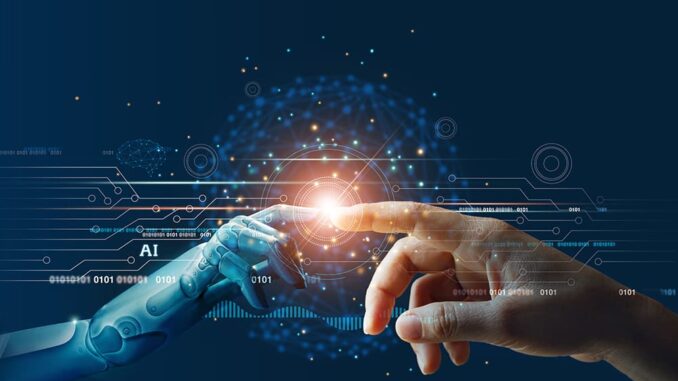
AI technologies have made significant inroads into numerous domains, demonstrating their versatility and transformative potential. Here are some diverse areas where AI is having a profound impact:
### 1. **Healthcare**- **Diagnostics:** AI algorithms analyze medical images (like X-rays and MRIs) to detect abnormalities, assisting radiologists in making more accurate diagnoses.









– **Drug Discovery:** AI accelerates the drug discovery process by predicting molecular behavior, optimizing preclinical testing, and identifying potential compounds.
– **Patient Care:** Predictive analytics help healthcare providers anticipate admissions and readmissions, while AI-driven chatbots offer 24/7 patient support.
### 2. **Finance**
– **Fraud Detection:** AI systems analyze transaction patterns in real-time to identify potentially fraudulent activity and reduce losses.
– **Algorithmic Trading:** AI-driven trading algorithms analyze market data and execute trades based on predefined criteria much faster than human traders.
– **Risk Assessment:** Machine learning models assess credit risk for loan applicants by analyzing large volumes of financial history and behavior data.
### 3. **Transportation and Autonomous Vehicles**
– **Self-Driving Cars:** AI systems utilize computer vision, sensor fusion, and deep learning to navigate and make driving decisions.
– **Traffic Management:** AI analyzes real-time traffic data to optimize flow and reduce congestion, improving overall transportation efficiency.
– **Fleet Management:** AI applications help companies track vehicle performance, optimize routes, and maintain schedules in real-time.
### 4. **Retail and E-Commerce**
– **Personalized Shopping:** AI systems analyze consumer behavior and preferences to provide personalized product recommendations and targeted marketing.
– **Inventory Management:** AI predicts demand trends to manage inventory levels effectively, reducing costs and enhancing supply chain efficiency.
– **Customer Support:** AI chatbots handle customer inquiries, offering support and driving engagement on retail platforms.
### 5. **Manufacturing**
– **Predictive Maintenance:** AI analyzes machine data to predict when equipment maintenance is needed, minimizing downtime and reducing repair costs.
– **Quality Control:** Computer vision systems inspect products on assembly lines, identifying defects and inconsistencies in real-time.
– **Supply Chain Optimization:** AI models forecast demand, optimize inventory management, and streamline logistics across the supply chain.
### 6. **Education**
– **Personalized Learning:** AI-driven platforms adapt learning materials and pace based on individual student progress and comprehension levels.
– **Administrative Efficiency:** AI automates administrative tasks like admissions processing and scheduling, allowing educators to focus more on teaching.
– **Tutoring Systems:** Intelligent tutoring systems provide students with tailored feedback and resources based on their learning styles and needs.
### 7. **Entertainment and Media**
– **Content Creation:** AI algorithms generate scripts, music, and art, aiding creative professionals and enabling new forms of art.
– **Recommendation Engines:** Streaming services use AI to analyze user preferences and suggest content, enhancing viewer engagement.
– **Game Development:** AI is employed to create more realistic and adaptive game environments and character behavior.
### 8. **Agriculture**
– **Precision Farming:** AI analyzes soil quality, weather data, and crop health, enabling farmers to optimize planting and harvesting schedules.
– **Yield Prediction:** Machine learning models predict crop yields based on historical data and environmental factors, helping farmers plan production.
– **Pest and Disease Detection:** Computer vision systems detect early signs of crop diseases or pest infestations, allowing for timely intervention.
### 9. **Telecommunications**
– **Network Optimization:** AI analyzes traffic patterns and network performance to optimize routing and improve service quality.
– **Customer Experience:** AI systems manage customer interactions via chatbots and virtual assistants, providing immediate support and issue resolution.
– **Predictive Maintenance:** Telecom companies use AI to predict network outages and proactively manage infrastructure.
### 10. **Legal Services**
– **Document Review:** AI tools can quickly analyze and categorize legal documents, reducing the time and cost associated with discovery processes.
– **Predictive Analytics:** AI analyzes case outcomes to help lawyers better assess the likelihood of success for different legal strategies.
– **Contract Analysis:** AI assists in reviewing contracts to identify potential risks, ensuring compliance, and suggesting revisions.
These diverse applications illustrate the profound impact of AI technologies across various sectors, driving efficiency, enhancing decision-making, and ultimately transforming industries. As AI continues to evolve, its capacity to influence even more domains will likely expand, leading to innovative solutions to complex problems.

Leave a Reply